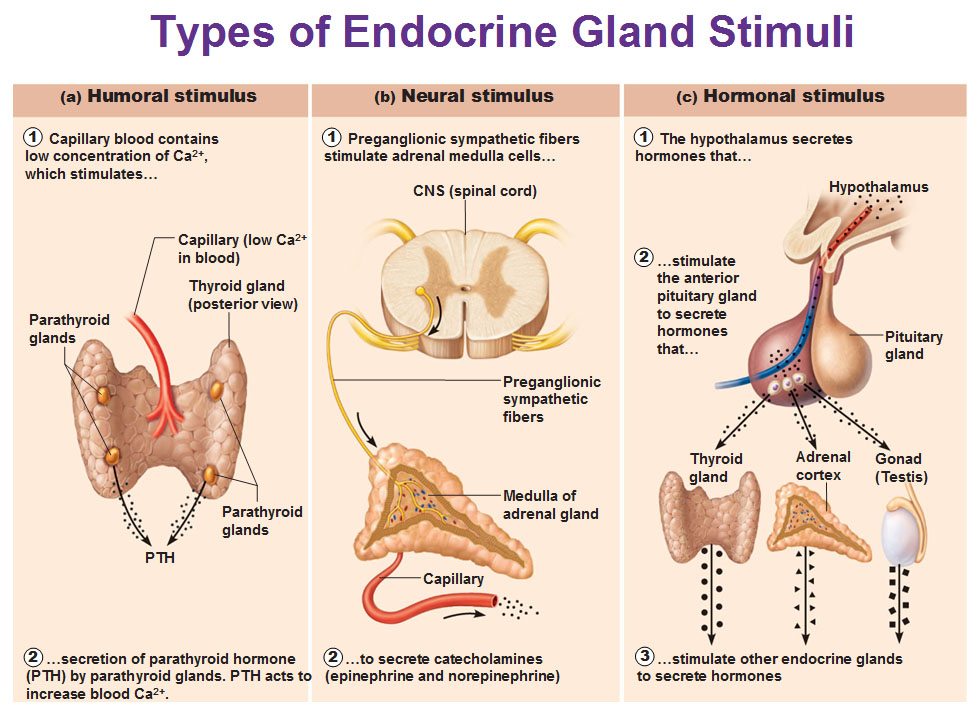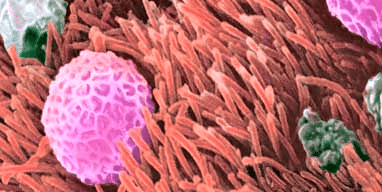With the holiday season here, our daily lives become filled with gift shopping, traveling, decorating, and planning. This time of year adds stress to even the most seasoned of veterans and getting overwhelmed is the last thing we need. When our bodies are stressed, it reduces our immune systems capabilities to fight off infections, presenting opportunities for bacteria and viruses.
The body responds to stress by releasing hormones which are chemical substances secreted by cells affecting other cells. Hormones are a form of cellular communication and allow the body to maintain its balance. Cells that are affected by a specific hormone are called target cells and depending on the type of hormone, the cells are either stimulated or depressed.
Hormonal responses work like dominos, causing a cascading reaction. In response to stress, the brain will transmits an impulse to the hypothalamus (a lower portion of the brain). This stimulates the hypothalamus to secrete a hormone called CRH (corticotropin releasing hormone). CRH targets cells located in the anterior pituitary gland and stimulates them to release ACTH (adrenocorticotropin) into the blood stream. When ACTH reaches the kidneys, it targets glands on their surface called the adrenal cortex and stimulates them to release two steroid hormones: Glucoccorticoids and Mineralcorticoids (inresponse to chronic stress)
Glucoccorticoids and Mineralcorticoids cause the body to:
- Retain sodium and water (by the kidneys)
- Increased blood volume (increasing blood pressure, hypertension)
- Convert proteins and fats converted to glucose or break them down for energy
- Increased blood glucose (combined with low levels of activity can cause hyperglycemia and increasing insulin levels)
- Suppression of the immune system
Glucocorticoid hormones suppress the growth of lymphoid tissue in our bodies, decreasing the formation of antibodies and T cells of the immune system. Antibodies and T cells are similar to army infantry, helping protect the body from invading threats. Chronic stress result in higher blood concentrations of glucocorticoid hormone, suppressing immune capabilities.
Proper activity levels, a clean diet, and rest will help the fight in rising stress levels. The immune system is at its strongest when we sleep, so rest is vital. Try reducing stress by exercising daily, exercise stimulates our bodies ability to recover from physical and mental stress. Remember to gauge intensity, training high intensity everyday can burn a body out. Don’t let this happen by incorporating proper periodization of intensity and rest.
A sniffle here, a sneeze there, and someone hacking up a lung over there fills the air with airborne pathogens. The air carries higher concentrations of bacteria and viruses this time of year, it doesn’t help that the air is cold and dry. Luckily our bodies are designed to filter and condition air; its as simple as breathing through our noses.
When we breath through our nose, the air is warmed, moistened and cleansed before gas exchange can take place in the lungs (alveoli). This process contributes to cleansing and protecting our internal cellular environment, which limits opportunities for harmful invaders.
Tiny hairs lining our nostrils reduce air speed, trapping large particles and allowing them to settle out. This process is similar to sand settling out of still water. Debris is carried away in mucous by small tail like structures called cilia. Cilia move mucous towards the stomach to be digested or expelled out of the nose and mouth.
To heat cold air, large capillary beds in the nose, full of warm arterial blood, line the nasal cavities. If airflow is too rapid, heat exchange will be reduced, and the air will not be properly conditioned. It’s not that cold dry air is bad; just that the respiratory system will function optimally when the air is warm and moist. If the system is functioning at optimal levels, invaders have less chances of successfully entering.
With all the stress of the holidays, the last things we need to worry about is remedies. Try focusing on breathing through your nose, stay hydrated, and wash your hands (because you should). So to stay healthy and stress free this winter.
Try these tips to stay healthy:
- Start the day with one to two big glasses of water to maintain water balance
- Eat clean, you are what you eat
- Take a multivitamin to ensure proper nutrition levels
- Rest as needed, shoot for 6-8 hours a night
- Stay active



